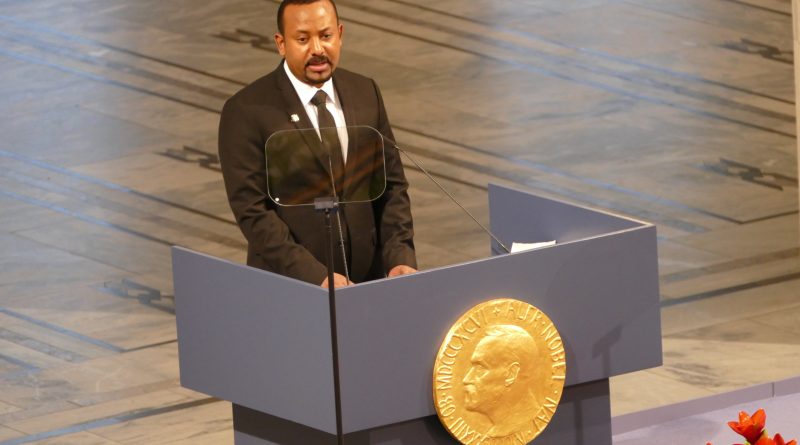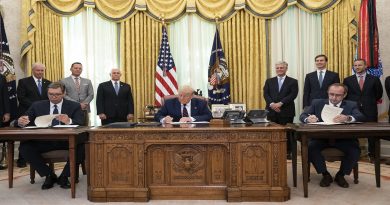Focus on Elections During Coronavirus: Ethiopia
Zach Schullian
Staff Writer
2019 Nobel Peace Prize winner and Ethiopian Prime Minister Abiy Ahmed is facing a critical moment as ethnic tensions boil. Abiy was elected in 2018 and is seen by many outsiders as a reformer seeking to lead Ethiopia away from the current system of ethnic federalism towards a more unified, secular federalist form of government. Under the constitution, Ethiopia is divided into nine ethnically-based regions that are each granted a significant amount of autonomy from the central government.
However, to achieve many of Abiy’s economic reforms, increasingly dangerous ethnic tensions must be settled, especially in the Oromia and Tigray regions, the Washington Post notes. Abiy’s political goals remain unclear though, despite having a strong economic vision for the country.
In March 2020, Abiy’s administration decided to postpone the September 2020 elections at the onset of the COVID-19 pandemic, extending the government’s mandate into at least 2021, The New York Times reports. This was met with backlash from leaders in the ethnic Tigray region, who called it a “power grab” by Abiy’s government and stated that they were not adequately consulted.
Later in July, a famous Oromo singer and rights activist Hachalu Hundessa was shot and killed by an unknown suspect while driving in the capital city, Addis Ababa. Abiy accused foreign forces of assassinating the singer in an attempt to destabilize the nation, alluding to a dispute with Egypt and Sudan over the Grand Ethiopian Renaissance Dam project. BBC News describes the shooting as having sparked mass violent protests by Oromo citizens, which were followed up by a controversial internet shutdown and arrests of multiple high-ranking Oromo officials.
These actions by Abiy’s administration drew commendation from many outsiders since a big part of Abiy’s campaign was releasing political opponents and journalists who suffered under previous administrations. To make matters more difficult for the Prime Minister, the Tigray region held local elections in September which he called “unconstitutional” and “illegal.” As Abiy’s government consolidates more power, some Tigrayans reportedly held talks regarding possible secession.
It is also interesting to note that under Article 39 of the Ethiopian constitution, a region may “govern themselves as they see fit.” This clause technically makes it legal for a region to secede, although the section notes that the founding democratic principles should, in theory, incentivize the citizens of a region to contribute more to the national identity than its own.
Throughout October, tensions continued to rise between the central government and the Tigray region. During the week of November 2, Al Jazeera reports Abiy launched a campaign against Tigrayan forces in the north of the region after accusing them of attacking a military base. Federal forces have also captured four towns and executed more than 10 air raids. Tigrayans say Abiy’s government has unfairly targeted them as part of a crackdown on past rights abuses and corruption.
The conflicts in the Oromia and Tigray regions trace back decades following the overthrow of the communist People’s Democratic Republic of Ethiopia by the Tigray People’s Liberation Front (TPLF) in 1991. After the TPLF rose to power, which represented only 6 percent of the country’s population, Tigrayans were far too nationally over-represented for the liking of many other groups. As a member of the Oromo ethnic group, Abiy’s rise to power in 2018 marked a decline in influence for the TPLF, as he hoped to distribute power more evenly.
Before 2018, the power of the TPLF largely came at the cost of the Oromos, the most populous Ethiopian ethnic group at over 34 percent of the population. During the peak of TPLF power, many human rights organizations depicted Ethiopia as a police state. Under the pretext of ‘fighting terrorism’, the regime exiled, prosecuted, and convicted several opposition leaders, community leaders, journalists, bloggers, and activists, punishing criticisms of any type.
However, following Abiy’s rise to power in 2018, many hoped that his administration’s policies would give priority to the Oromo population after decades of oppression. As a result of the long history of a lopsided balance of power, both groups felt disappointed when Abiy’s government did not match their expectations. To maintain adequate national and social stability, Abiy now walks a thin tightrope among starkly opposing interests. Many of his economic reforms require a more centralized government and a consolidation of power — which is extremely difficult to accomplish under this type of political climate, TIME adds.


